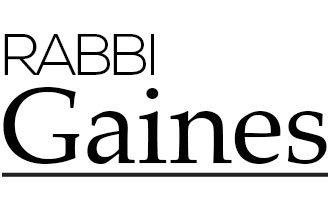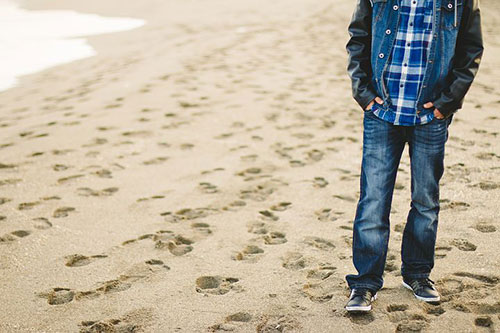Ever hear of a “Carbon Footprint?” Let’s define the term. A “carbon footprint” is, quoting the online dictionary, “The total amount of Carbon Dioxide, and other carbon emissions emitted due to the consumption of fossil fuels by a particular person, group, etc.” One of mankind’s collective ecological missions has become to avoid leaving a substantial carbon footprint in nature.
Now what about the soul?
Does the soul leave its own “footprints,” impressions if you will, on the world around it? If so, how exactly does our soul’s “imprint” affect others when we are no longer present - when we have already taken leave of a given environment? To commence our discussion, we turn to a famous teaching expounded by Master Kabbalist Rabbi Issac Luria (the Ari’zl) of Safed. There, in his classic work, “Etz Chaim” (“Tree of life”) he discusses how holiness (“Kedusha” in Hebrew) never truly disappears, for when the essence of a “light,” a “Holy thing”, departs, it leaves an everlasting imprint on the place/environment it once stood. Simply stated, our soul’s unique light never really departs (even after death), but remains forever entangled in the world’s consciousness! This teaching of Kabbalah (the “hidden Torah”) is also found twice in the commentary of Rashi (the famous 12th century master of “revealed Torah”). To give just one example, Rashi (to the verse in Genesis, “And Jacob departed from Ba’er Shava”) explains, “When a righteous person departs, it creates an impression.” Both Rashi and the Ari’zl are speaking (albeit in slightly different ways) of “impression” - the imbuing of the soul’s light into worldly consciousness even after its departure.
Having now substantiated the Torah’s (Bible’s) belief in “impression” - the soul’s eternal effect on the environment it once occupied - we can now turn to question 2: How do these impressions (spiritual “footprints”) affect us? There are two particular examples worthy of citation: 1) Rabbi Zusha of Anipoli; and 2) Rabbi Chayim David Azulai.
Let’s begin with Reb Zusha.
Explains Rabbi Zusha of Anipoli (Master of Kabbalah), “Sometimes we experience a moment of forgetfulness (failure to carry out a specific spiritual responsibility) in a given environment because we are “weakened” by its “consciousness” - the lesser (mundane) consciousness of others. Rabbi Zusha is clearly of the opinion that environments are filled with “impressions” - influences imparted by the souls of others - that do profoundly impact (for good or for bad) our own conscious experience. Sounds a bit frightening, I know, but there is a major upside.
Famed Kabbalist Rabbi Chayim David Azuli (the “Chida”) explains that it is possible for a lesser diligent or talented student to suddenly experience an epiphany (a deep insight) in spite of his lackluster efforts. How? If he happens to be studying in an environment frequented by great scholars! Explains the Chida, this strange phenomena becomes possible only because the great scholar (who was present in the room before the arrival of the less diligent student) already revealed these deep insights (from their concealed depths) and infused them into the “air” of the room - the consciousness of the general environment. Hence, a student of far less skill or aptitude is capable of discovering these wondrous gems as they are already infused in the “air,” (the consciousness) of the room around him!
From the above two examples we clearly see that our soul’s “impressions” do (for good or for bad) directly affect the surrounding material environment, thus impacting the consciousness of others.
Lesson? Thought, speech, and deed must never be underestimated, for even the smallest of acts creates an “impression,” a wave of consciousness (for good or bad) that directly influences and transforms the consciousness of others. Simply put, everything you think, say, and do matters, everything, so use your soul’s powers well; you never know who you are destined to affect. Make the effect a great one!




